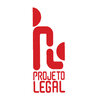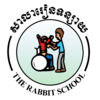Project RED is a Christian faith-based organization working in partnership with the Salvadoran government to bring lasting change to forgotten families in need in El Salvador through actions of Reintegration, Education and Development. Project RED works with the families of children who have been living in orphanages and have been placed in the homes of members of their biological families as a result of the LEPINA Law in El Salvador.
Projeto Legal is a Brazilian non-governmental, human rights organisation working for the promotion and defence of human rights, especially those of children, adolescents and youth.
Their focus is the legal and psychosocial care of citizens who have experienced rights violations. Their interdisciplinary team handles the particularities of each individual case and works to keep citizens’ ownership of their rights.
Projeto Legal is a member of Family for Every Child.
PROMISE is supporting Europe to adopt the Barnahus model as a standard practice for providing child victims and witnesses of violence rapid access to justice and care. PROMISE undertakes this work to fulfill its vision: a Europe where the human rights of children to protection from violence, support and to be heard are fulfilled.
Foundation PIP is a non-profit CBO (Community Based Organization) that was founded in 2011 in Kisumu, Kenya. The founder, who had a family counselling career that spanned over 30 years in the Netherlands, came to Kisumu, Kenya. As a volunteer within a street- connected organization, she was able to have a clear overview of the policies and operations governing other street-connected organizations and Charity Homes that rescued children from the streets, or where street-connected children were brought.
PUSKAPA works to help policy makers improve children's access to health, education, justice, and social care in Indonesia. PUSKAPA is composed of an inter-disciplinary team of academics and practitioners from Indonesia and abroad. They pursue their goals through three interrelated set of activities: Research, Policy Advocacy, and Capacity Building.
Quality for Children is an initiative by SOS Children’s Villages, IFCO and FICE to develop the Quality4Children Standards - a set of quality standards for out-of-home child and youth care in Europe.
QPI is a national movement for foster care system change, made up of a network of states, counties and private agencies committed to ensuring that all children in care have excellent parenting and lasting relationships so they can thrive and grow.
The Rabbit School is a Cambodian NGO that was established in May 1997 as a Pilot Project to provide education for children with special needs at the Nutrition Centre, a governmental orphanage founded in Phnom Penh in 1982 for children in the age from 0-6 years, who were abandoned or whose parents were killed during the Khmer Rouge regime (1975-1979). The Rabbit School’s mission is oriented toward the rehabilitation and full integration of people with intellectual disabilities into Cambodian society, focusing specifically on Children and Youth with Intellectual Disabilities.
Since Railway Children was founded in 1995, the charity has had one mission: to create and enable sustainable change for children living alone at at risk on the streets. In India, Tanzania and the UK, Railway Children have changed the lives of thousands of vulnerable children living alone and at risk on the streets and achieved landmark policy changes across all three countries to better protect street-connected children.
Raising Futures Kenya (formerly Vision Africa) is a UK Christian charity, supporting vulnerable and disadvantaged children throughout Kenya. They partner with communities to develop systems that will facilitate deinstitutionalization and empower vulnerable families to take care of children at risk of being placed in orphanages. These might include social work intervention or education sponsorships depending on the family situation.



